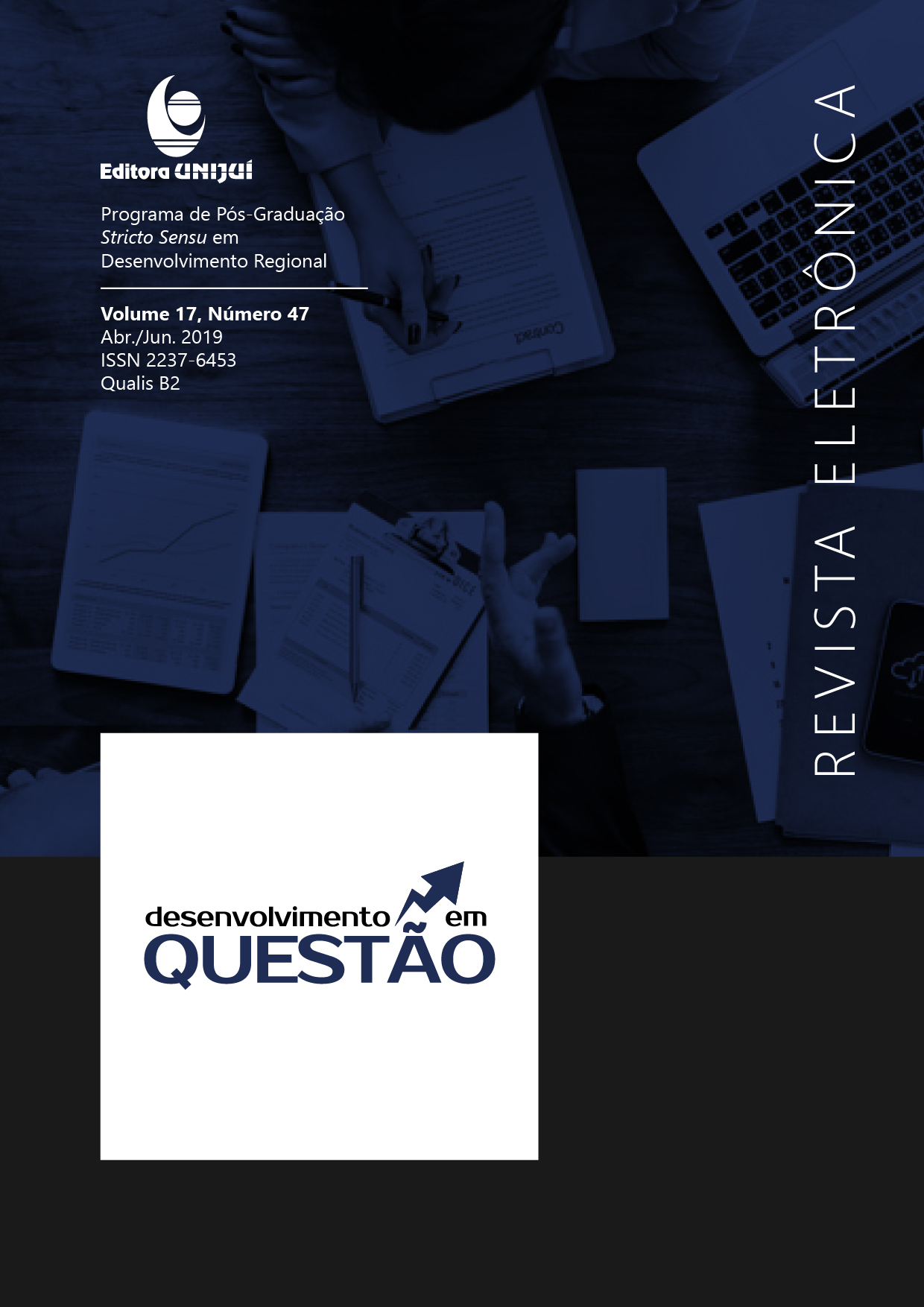ASPECTS OF HETEROGENEITY IN THE FAMILY AGRICULTURES OF TOLEDO AND NORTH PIONEER REGIONS, PARANÁ STATE, BRAZIL
DOI:
https://doi.org/10.21527/2237-6453.2019.47.283-300Keywords:
age classes, agricultural advisory, asssociativism, instructional level, typology.Abstract
A heterogeneidade da estrutura produtiva e dos modelos de produção é traço marcante da agricultura brasileira. O conceito de “agricultor familiar” definido em lei, esconde a grande diversidade presente também nesse estrato de produção. A realização do Censo Agropecuário 2006 considerando a estratificação dos diferentes grupos de beneficiários do PRONAF, oferece a possibilidade de identificar e discutir as distinções entre os diferentes tipos de agricultores familiares. Esse artigo tem por objetivo aferir, caracterizar e analisar comparativamente a presença de tais distinções no estado do Paraná e em duas de suas regiões, as quais apresentam históricos distintos de ocupação e índices contrastantes de desenvolvimento. Para tanto, foram analisados dados censitários agrupados considerado informações referentes aos agricultores, unidades produtivas, atividades econômicas, renda e ocupação. Observou-se o predomínio do grupo B do PRONAF no estado e no Território Norte Pioneiro e do grupo C na Microrregião de Toledo. As diferenças mais relevantes entre regiões e entre tipos de agricultores encontram-se em variáveis como o grau de associativismo e a oferta ou não de orientação técnica. Como similaridade destaca-se a presença marcante de “pronafianos” do grupo B nas classes de idade mais avançada, reforçando a preocupação com os processos de sucessão na agricultura familiar.
Downloads
Published
How to Cite
Issue
Section
License
By publishing in Revista Desenvolvimento em Questão, authors agree to the following terms:
All works are published under the Creative Commons Attribution 4.0 International License (CC BY 4.0), which allows:
Sharing — to copy and redistribute the material in any medium or format;
Adaptation — to remix, transform, and build upon the material for any purpose, even commercially.
These permissions are irrevocable, provided that the following terms are respected:
Attribution — authors must be properly credited, a link to the license must be provided, and any changes made must be indicated.
No additional restrictions — no legal or technological measures may be applied that legally restrict others from doing anything the license permits.
Notices:
The license does not apply to elements that are in the public domain or covered by legal exceptions.
The license does not grant all necessary rights for specific uses (e.g., image rights, privacy, or moral rights).
The journal is not responsible for the opinions expressed in the articles, which are the sole responsibility of the authors. The Editor, with the support of the Editorial Board, reserves the right to suggest or request modifications when necessary.
Only original scientific articles presenting research results of interest that have not been previously published or simultaneously submitted to another journal with the same purpose will be accepted.
Mentions of trademarks or specific products are intended solely for identification purposes and do not imply any promotional relationship by the authors or the journal.
License Agreement (for articles published from 2025 onward): Authors retain the copyright to their article and grant Revista Desenvolvimento em Questão the right of first publication.











